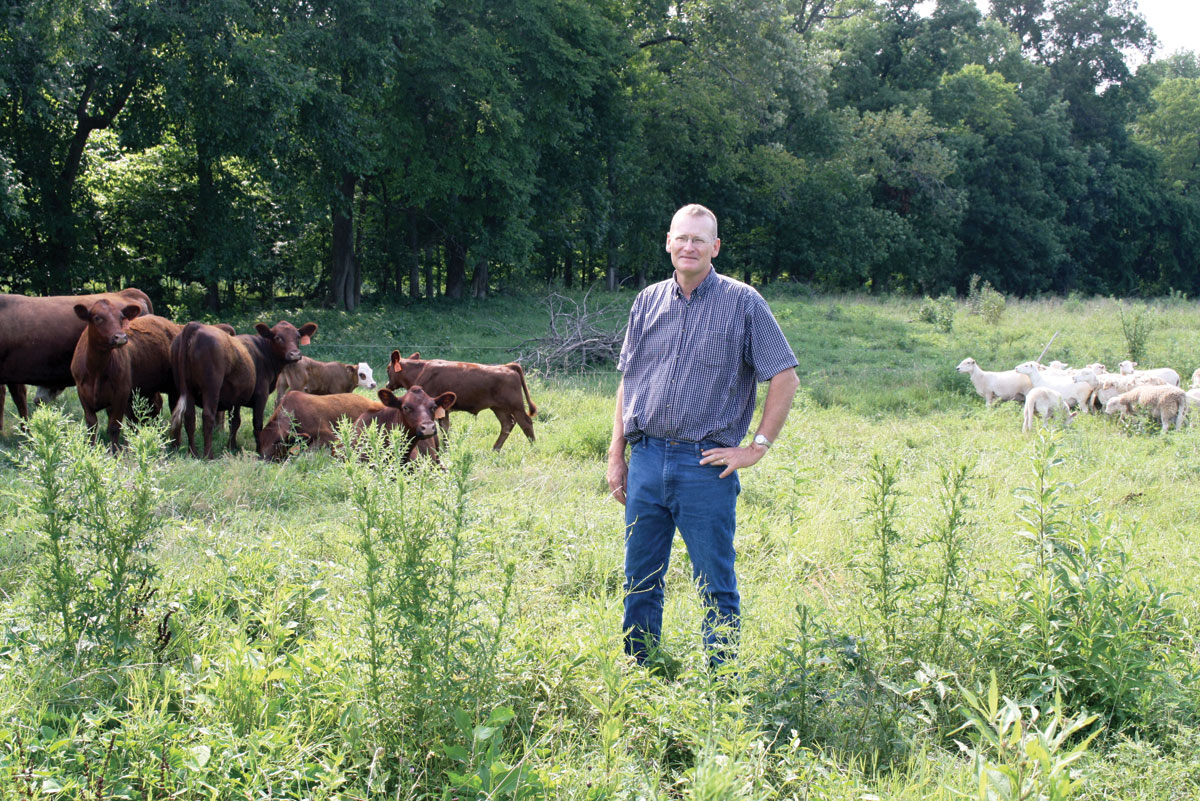
Horsewoman Judi Carlson once said, “When riding a horse, we leave our fear, troubles and sadness behind on the ground.”
Thanks to the work of the H.A.Y. Foundation, that is exactly what horses are doing for some children in Southwest Missouri.
At H.A.Y. (Horses Assisting Youth), children between the ages of 4 and 17 who suffer from low self-esteem, anxiety, bullying and other social and/or emotional issues are given the opportunity to learn to ride a horse, but they take away much more. Through the riding lessons, children build confidence and self-esteem, as well as self-discipline and improved communications skills.
Loryn Barclay, the foundation’s assistant coordinator and a senior arena instructor, said the foundation started in an unlikely way.
Laurel Koenigsfeld, daughter of the organization’s founders, Dave and Amy Koenigsfeld, wanted to learn to ride horses. Laurel got her wish, but her parents felt there was more in store for them.
The Koenigsfelds, who had never owned horses prior to their daughter’s desire for a trusty steed, started the not-for-profit H.A.Y. Foundation in 2011, with the first children being served in 2012.
“They just wanted to do something for the community, to give back,” Loryn said.
Loryn explained that the children who come to H.A.Y. for lessons are considered “at risk” because of their emotional or social issues.
H.A.Y., which is near Nixa, Mo., does not provide services to adults, or to persons with severe developmental delays. Children who participate are also not simply lead around an arena on a horse. When they graduate the eight-week program, they will have the skills needed to ride on their own.
“Most of the kids who come in here have no self-esteem, low self-confidence and don’t think they can do anything by themselves,” Loryn explained.
“A big part of it is teaching them that they have control of their surroundings and over this horse. It gives them a huge boost in self-confidence. A lot of our kids really find themselves here, and then they go back to school and tell other kids about what they are doing. They might not have had friends before and now they are making friends. We have several teachers who give us reports that these kids may have never raised their hand in class before, but now they are. It really changes things for a lot of these kids.”
Loryn added that changes are almost immediate with some children.
“The transition from week one to week eight, you just can’t believe it,” she said. “Some kids come in terrified or so nervous that they can’t speak. After a few weeks, they have a smile and they just can’t wait to come.”
Children are referred to H.A.Y. through schools, private counselors and state agencies. Some parents and grandparents also seek assistance from H.A.Y.
In addition to riding lessons, children do equine-related classroom activities, which include puzzles, games and books, as well as hands-on work with H.A.Y.’s two miniature horses, all of which help to expand their communication skills and knowledge about horses.
“They learn this new ‘vocabulary,’ like certain parts of the horse, saddle and bridle,” Loryn said. “That way when they need to listen to me or other instructors, they know what we are talking about. In doing this, by week two, they are able to get on the horse and start riding.”
All of the senior instructors at H.A.Y. have extensive horse sense and younger equine practitioners are hired, some of whom are graduates of the program, to assist by serving as peer role models and youth demonstrators who ride beside the child to demonstrate direction given by the instructor.
“Everyone here have big smiles on their faces all the time,” Loryn said. “I think the kids look forward to coming somewhere where everyone smiles, and having a positive environment and positive role models to look to; they need them.”
While Loryn has been riding horses since she can remember, she said working with H.A.Y. has been her first experience working with children. With that, she had some of her own fears to conquer.
“I had no idea how to work with kids when I came,” she said. “I’m great with 1,200-pound animals, but there are no younger kids in my family and I was honestly scared of them. I had no idea how to work and talk with them, but they have changed my life. I am so much more confident now in that I can speak up for myself, and I can speak to the kids and direct them. I was kind of a recluse, but now the kids at the H.A.Y. Foundation have really brought me out of my shell. They have helped me as much as I have helped them.”
H.A.Y. is the only program of its type in the region, and Loryn said the demand for the services continues to grow.
“People are learning how awesome horses are and what they can do for kids, both socially and emotionally,” she said. “The demand is there and we have no problem getting referrals. We actually have a waiting list. I really hope that people will start learning more about these types of programs because they are changing lives.”
In 2015, H.A.Y. provided services to about 100 children, which is nearly double from 2014.
“We’re trying to keep up with demand, but we provide services solely on donations, and donations only go towards the kids,” Loryn said. “Amy and Dave take care of the facility and the needs of the horses, but the donations we receive reflects how many kids we can help.”







